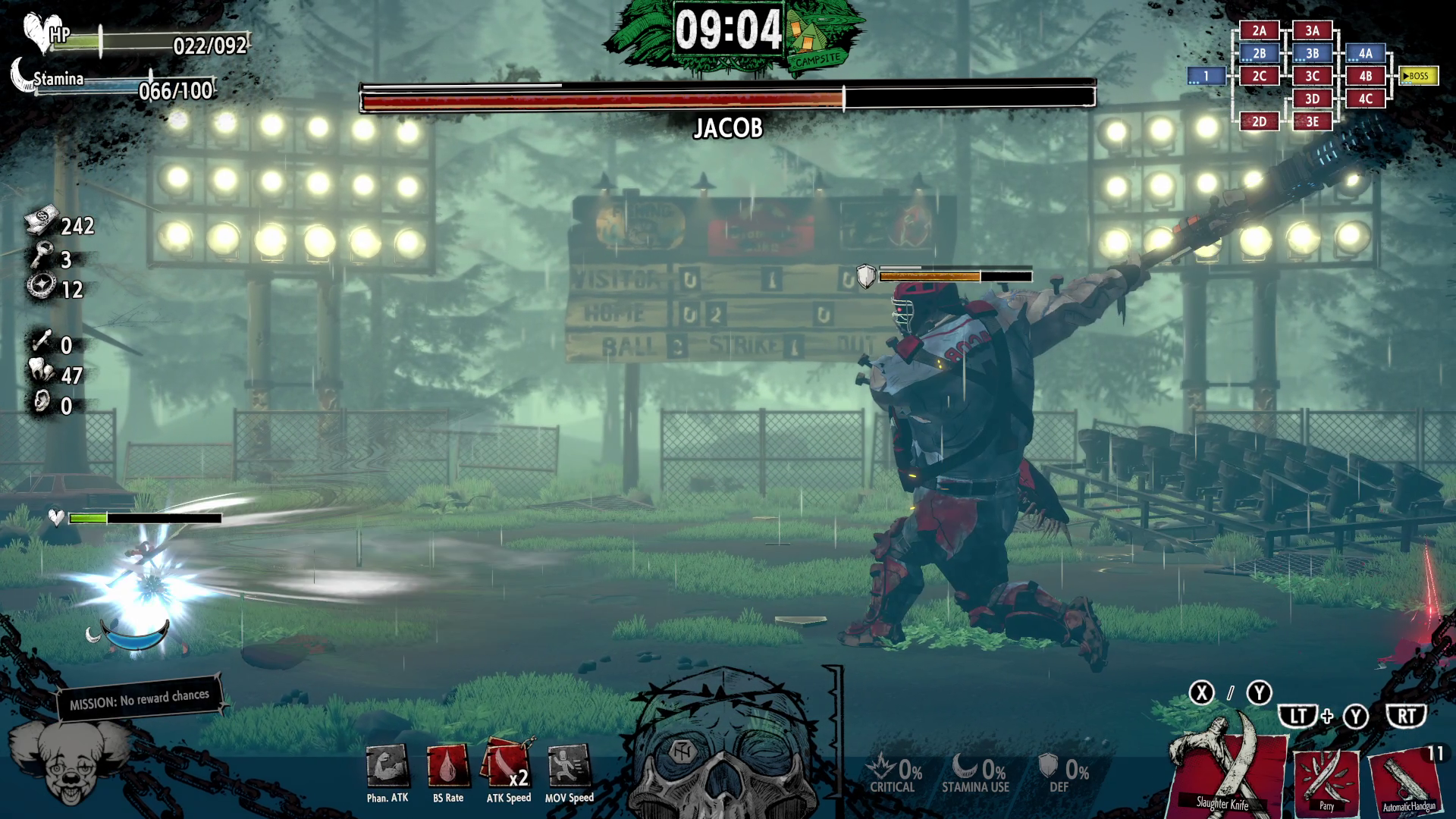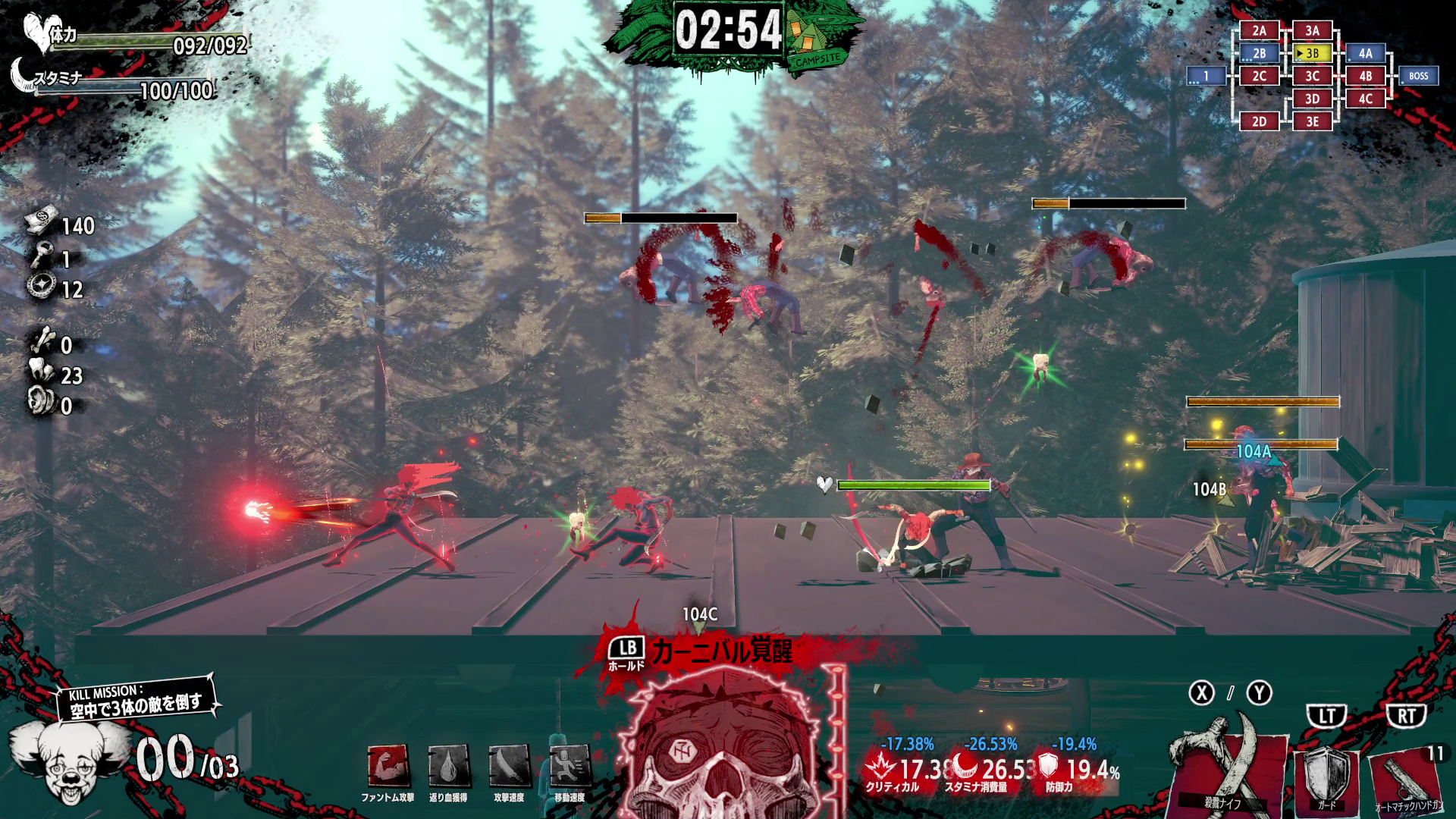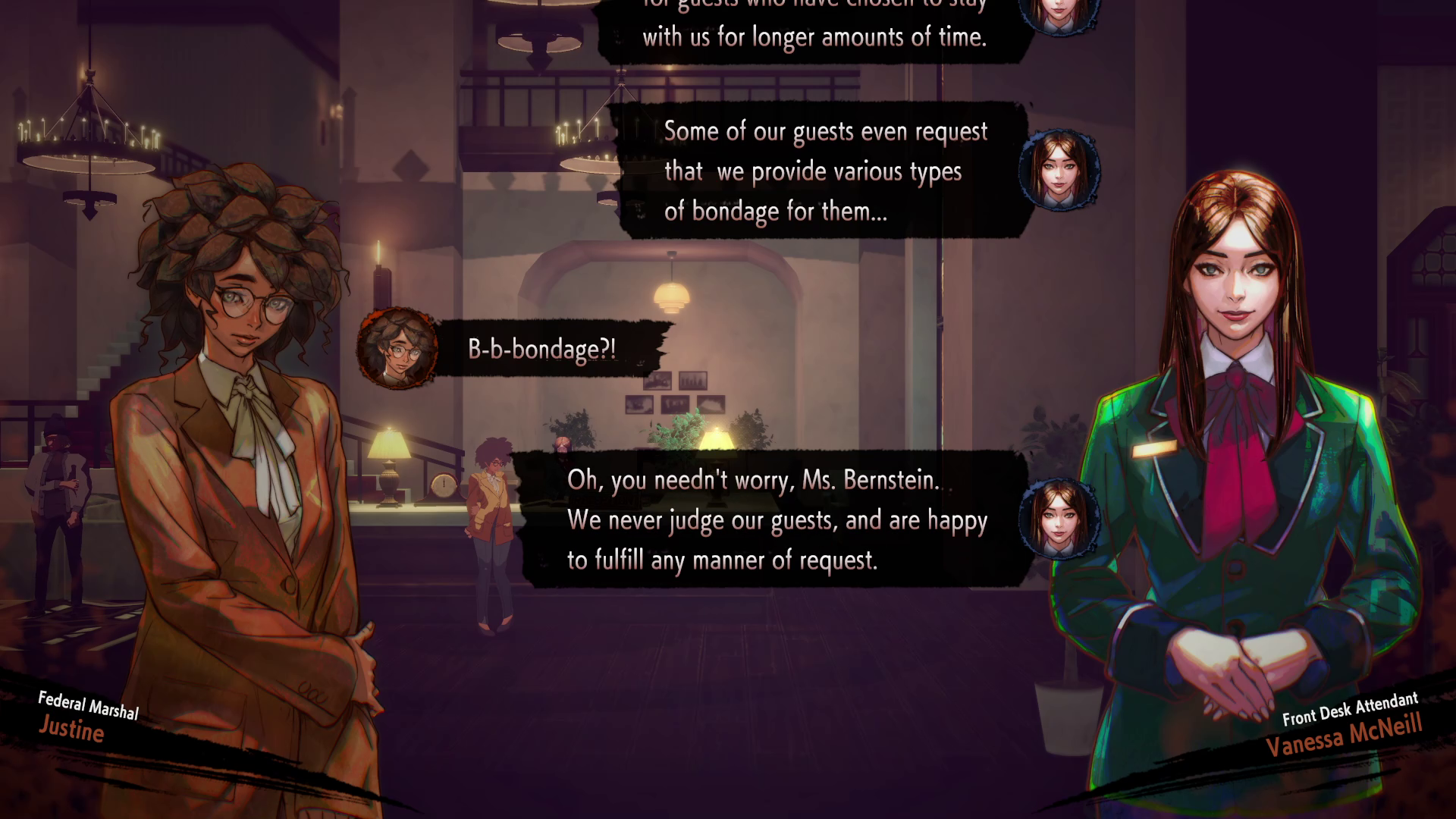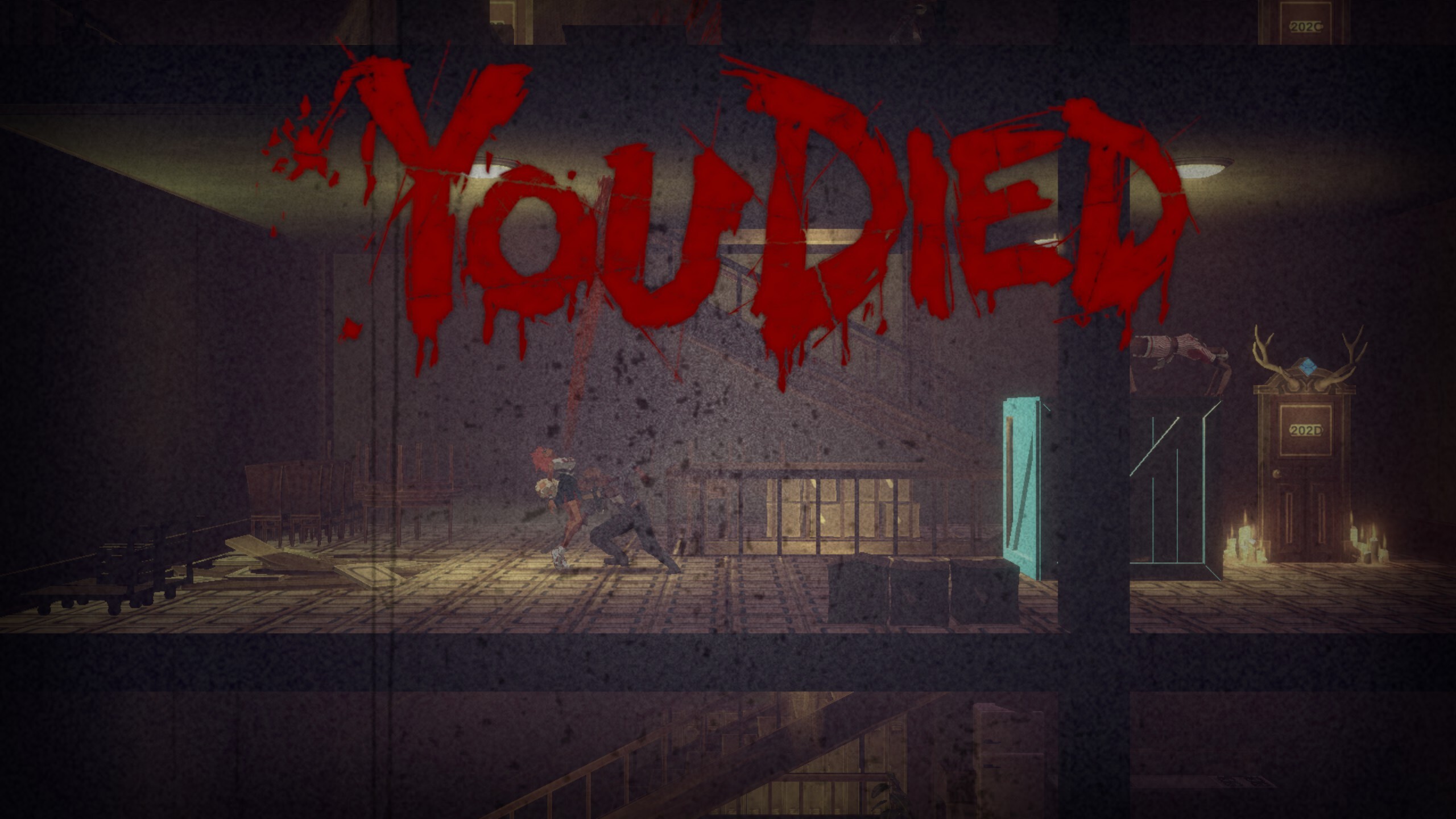When news first broke of a collaboration between the enigmatic minds of SUDA51 and SWERY, a tremor of excitement ran through my mind. For fans of their distinctive, often peculiar, and always engaging narratives, the prospect of such a partnership was a dream come true. Both creators are known for their unique storytelling and memorable characters, even if their games sometimes stumble on the gameplay front. Having now delved into the dark depths of Hotel Barcelona, it’s clear that this roguelite effort embodies many of the qualities that endear us to their past works, but also carries the familiar baggage of a somewhat cumbersome user experience.

A Twisted Tale of Horror and Mayhem
Hotel Barcelona thrusts players into the shoes of federal marshal Justine, who, after a harrowing car crash, awakens to find herself in a hotel eerily reminiscent of Stanley Kubrick’s Overlook Hotel. This is no ordinary establishment; Justine soon discovers her mind is being shared with Dr. Carnival, a menacing serial killer capable of transforming her into a lethal killing machine. Her ultimate goal is to unearth and neutralize The Witch, the sinister entity pulling the strings behind the hotel’s macabre operations. To achieve this, Justine must navigate a series of multi-level areas, each culminating in a boss battle against one of the hotel’s resident serial killers.
It’s in these narrative beats that Hotel Barcelona truly shines. Each boss boasts a backstory so intricately bizarre and uniquely horrifying that it could only spring from the combined imaginations of SUDA51 and SWERY. These character introductions and post-defeat cinematic sequences, spaced out between runs, are the game’s undeniable highlights, almost single-handedly justifying the frustrations of the journey. The game is also a hearty homage to horror cinema, replete with references ranging from overt nods to more subtle, blink-and-you-miss-it tributes that a movie buff will undoubtedly relish. The passion for the genre is palpable, weaving a rich tapestry of psychological dread and visceral terror that permeates every corner of the narrative.

A Roguelite Lacking Fluidity, Yet Featuring Clever Companions
At its core, Hotel Barcelona is designed as a roguelite, a genre celebrated for its challenging yet fair combat and fluid movement. Unfortunately, Hotel Barcelona struggles significantly in this department. The combat often feels sluggish, unresponsive, and fundamentally bland. Unlike the genre’s leading titles, where every death feels like a learning opportunity, here, the controls often feel “off,” marred by a persistent delay that frequently leads to frustration rather than self-reflection. When a game’s core mechanics repeatedly leave you feeling that death wasn’t your fault, it becomes a significant barrier to engagement and enjoyment.
Like other games in the genre, there’s a skill tree system to enhance your character after each run. However, given the initial jankiness of the gameplay, you’ll need every bit of help you can get. Sadly, the skills themselves rarely feel impactful or exciting, mostly offering minor percentage boosts that do little to fundamentally alter the frustrating combat experience or make you feel genuinely more powerful.
Yet, amidst the clunky controls and underwhelming upgrades, a beacon of innovation flickers in the hotel’s lobby: the brilliant addition of doppelgangers. When retrying an area, a spectral ghost of your previous run joins you, replicating your past actions with an independent life. As you invest points into the right sections of the skill tree, you can amass more doppelgangers across runs. This mechanic truly comes into its own during boss fights, where having a small army of four or five spectral allies fighting alongside you isn’t just incredibly helpful; it’s genuinely fun and provides a much-needed sense of empowerment and strategic depth that the base combat lacks. This unique feature is something I sincerely hope to see iterated upon in future roguelites.

Graphic Novel Gore and Solid Voice Work
Visually, Hotel Barcelona opts for an aesthetic reminiscent of a violent graphic novel, and it’s crucial to emphasize the “violent” aspect. This game revels in its gore, with limbs and heads frequently detaching from bodies in a deluge of blood. While it may not be the most graphically advanced title on the market, its stylized approach effectively conveys the game’s brutal atmosphere, achieving precisely what it sets out to do. The soundtrack, much like the general graphics, is competent but largely unremarkable, fading into the background rather than enhancing the experience significantly.
The voice acting performances are consistently strong, breathing considerable life and personality into the fantastic cast of characters that populate the hotel. This vocal talent goes a long way in making the brilliant storytelling even more captivating, anchoring the bizarre personalities with credible and engaging delivery.

Conclusion
Hotel Barcelona is ultimately a mixed bag, a game that simultaneously attracts and repels. No matter how much I wanted to wholeheartedly embrace it, the game’s shortcomings in core gameplay often worked against my enthusiasm. Given the track record of both SUDA51 and SWERY, who are renowned for their compelling narratives and memorable characters, often paired with quirky or janky gameplay systems, Hotel Barcelona fits right into their established patterns.
Despite the pervasive lack of polish and fluidity in its combat loop, the exceptional characters and the wonderfully twisted story they inhabit almost, almost, make the journey through this bizarre, blood-soaked hotel worthwhile. For those who prioritize narrative creativity and unique artistic vision over pristine gameplay mechanics, and who are already fans of the idiosyncratic styles of SUDA51 and SWERY, Hotel Barcelona offers a distinctive and memorable, albeit heavily flawed, experience.

Leave a Reply